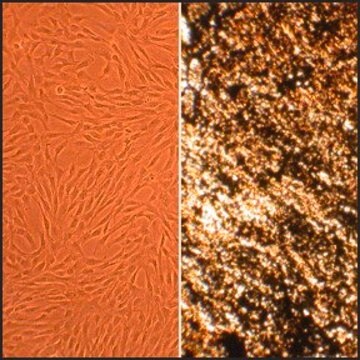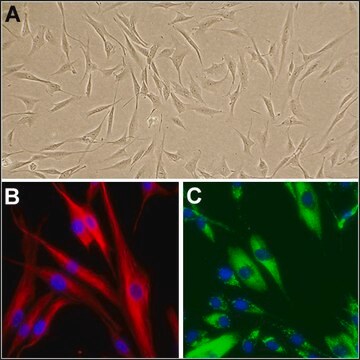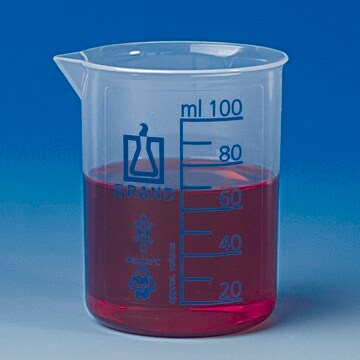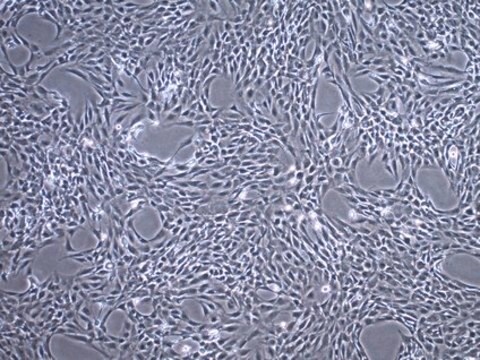C-12720
Human Osteoblasts (HOB)
500,000 cryopreserved cells
Synonym(s):
HOB cells
About This Item
Recommended Products
biological source
human bone (knee and hip joints)
packaging
pkg of 500,000 cells
morphology
(osteoblasts)
technique(s)
cell culture | mammalian: suitable
shipped in
dry ice
storage temp.
−196°C
General description
Cell Line Origin
Application
Quality
Warning
Subculture Routine
Other Notes
Recommended products
Disclaimer
Storage Class
12 - Non Combustible Liquids
wgk_germany
WGK 2
flash_point_f
Not applicable
flash_point_c
Not applicable
Certificates of Analysis (COA)
Search for Certificates of Analysis (COA) by entering the products Lot/Batch Number. Lot and Batch Numbers can be found on a product’s label following the words ‘Lot’ or ‘Batch’.
Already Own This Product?
Find documentation for the products that you have recently purchased in the Document Library.
Articles
Primary human osteoblasts and media for the optimal growth and mineralization of human osteoblast cultures. Protocols for handling, cell passaging, media, and product use.
Overview of primary cells and media usage in biomedical culture applications highlights differences from cell lines.
Yeast plasmid selection: Utilizes auxotrophic yeast strains for plasmid selection, enabling growth on synthetic media for better yield.
Related Content
Cell culture protocol used to differentiate primary human osteoblasts into bone cells in 2-3 weeks.
Our team of scientists has experience in all areas of research including Life Science, Material Science, Chemical Synthesis, Chromatography, Analytical and many others.
Contact Technical Service






